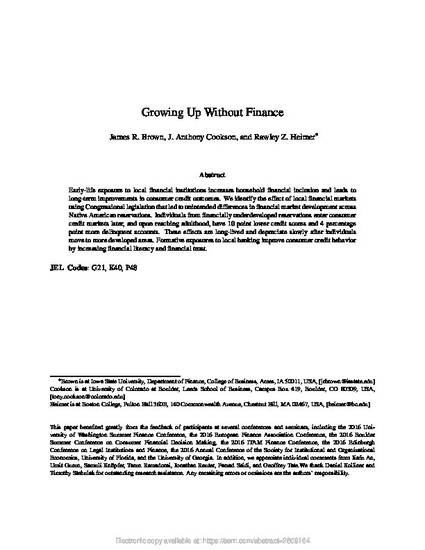
Early life exposure to local financial institutions increases household financial inclusion and leads to long-term improvements in consumer credit outcomes. We identify the effect of local financial markets using Congressional legislation that led to unintended differences in financial market development across Native American reservations. Individuals from financially underdeveloped reservations enter consumer credit markets later, and upon reaching adulthood, have ten point lower credit scores and four percentage point more delinquent accounts. These effects are long-lived and depreciate slowly after individuals move to more developed areas. Formative exposures to local banking improve consumer credit behavior by increasing financial literacy and financial trust.
Available at: http://works.bepress.com/james-brown/20/

This accepted article is published as Brown, J.R., Cookson, J.A., Heimer, R.Z., Growing Up Without Finance. Journal of Financial Economics, Dec 2019, 134(3);591-616. Doi: 10.1016/j.jfineco.2019.05.006. Posted with permission.